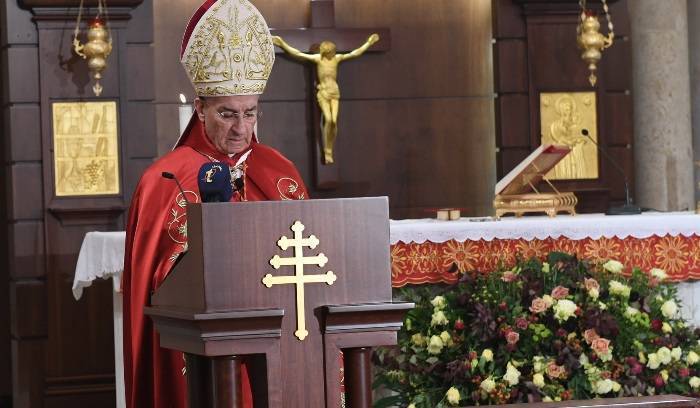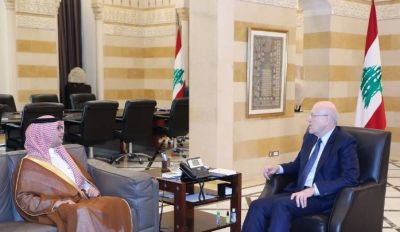
The Maronite Patriarch Bechara al-Rai. (Credit: NNA/File photo)
BEIRUT — The Maronite Patriarch Bechara al-Rai Sunday criticized MPs for not electing a new president, saying that “whoever examines the movements of a number of deputies during the last parliamentary sessions, immediately discovers that they are in a play.” His remarks come as head of state Michel Aoun's mandate is set to expire on Oct. 31, while no political agreement has been reached yet around a new president, as is customary in Lebanon.
'Betrayal'
During Parliament's third election session on Oct. 20, Lebanon's MPs failed to elect a new president for the third consecutive time. A fourth session will be held on Monday, but MPs are unlikely to elect a new president without consensus.
In his Sunday homily, Rai said that the parliamentary session that took place last “Thursday was two sessions: the session to elect the president inside the public hall, and the session to disrupt the quorum in the surrounding halls.” Several MPs left the session in what seemed a coordinated move to lose quorum and end the meeting. Such a move has taken place in previous sessions as well.
Rai criticized a "bargaining market for settlements among MPs" around the election.
"We are at the height of political corruption," Rai said, accusing MPs who are failing to elect a president of "betrayal" and of "diving the country."
Kaouk on the presidency
Hezbollah's executive council member Nabil Kaouk said on Sunday, during a religious sermon in Aita al-Shaab, South Lebanon, that "It is no longer a secret to the Lebanese that the Saudi embassy in Lebanon interferes in the elections of the President of the Republic as it interfered in the elections of the Parliament, but this time directly and without mediation, as some MPs complain about being subjected to pressure from the American and Saudi embassies."
"This is enough of a farce and an insult to Lebanese sovereignty and dignity,” he added.
Kaouk also said that the parliamentary sessions without consensus on a new president lack “seriousness,” and that "seriousness begins when there is a national consensus to elect a president of the republic that brings the country out of its crises, does not cause the country new crises, protects national unity and does not explode the country with internal strife.”
In 2016, the election of President Michel Aoun, founder of the Free Patriotic Movement and ally of Hezbollah, was made possible after more than two years of a presidential vacuum, by arrangements between political groups. At the time, the Future Movement, led by Saad Hariri, and Samir Geagea's Lebanese Forces agreed to support Aoun's candidacy, which was also backed by Hezbollah. But today, no consensus or compromise seems to be emerging so far regarding the election, while no one camp can claim to have a majority in Parliament.
The country entered its presidential election period, which lasts two months, at the beginning of September. Fears, however, are mounting of the risk of a complete vacancy in the country's executive power should Aoun's mandate expire on Oct. 31 without a new government being formed.
